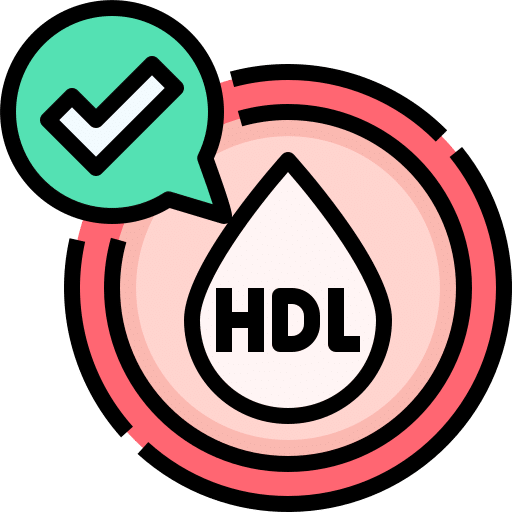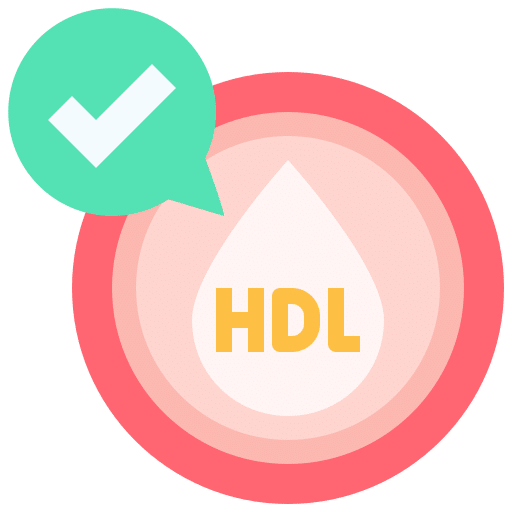
HDL Cholesterol

Analyzer Report
Frequently Asked Questions
The HDL cholesterol test detects high-density lipoprotein (HDL) cholesterol levels in your blood. Because it helps eliminate low-density lipoprotein (LDL) cholesterol, or “bad” cholesterol, from your system, HDL cholesterol is commonly referred to as “good” cholesterol.
Here are some of the consequences of having low HDL cholesterol:
- Heart disease risk is increased: Low HDL cholesterol levels are linked to an increased risk of heart disease. HDL cholesterol protects the arteries from plaque building, and low levels may contribute to the development of atherosclerosis (hardening and constriction of the arteries), which can lead to heart attacks and strokes.
- Reduced cholesterol clearance: When HDL levels are low, cholesterol clearance from tissues and blood vessels may be hindered, potentially leading to greater LDL cholesterol levels.
- Low HDL cholesterol is frequently related with other metabolic disorders, such as increased triglyceride levels, insulin resistance, and obesity. These disorders, when combined, raise the chance of developing metabolic syndrome, type 2 diabetes, and obesity-related comorbidities.
- Inflammatory response: Low HDL cholesterol levels may be connected to chronic inflammation in the body, which is linked to a variety of health issues such as cardiovascular disease, diabetes, and some autoimmune illnesses.
- Low HDL cholesterol levels might be related to hereditary causes in some circumstances. Certain genetic variants can impede HDL generation, function, or clearance, resulting in chronically low HDL cholesterol levels.
- A high amount of HDL cholesterol is linked to a decreased risk of heart disease, heart attacks, and strokes.
- High amounts of HDL cholesterol may have anti-inflammatory and antioxidant characteristics, which may aid in the prevention of atherosclerosis (hardening and constriction of the arteries).
- Individuals with high HDL cholesterol levels frequently have a better lipid profile, with lower LDL cholesterol and triglyceride levels.
This test measures your HDL cholesterol levels, which are an important component of your total cholesterol profile. Higher HDL cholesterol levels are typically connected with a lower risk of heart disease, but low HDL cholesterol levels might be a risk factor for cardiovascular diseases.
HDL cholesterol provides various advantages for your cardiovascular health. It aids in the removal of excess LDL cholesterol from the arteries, limiting plaque development and lowering the risk of atherosclerosis, a disease in which plaque builds up and narrows the arteries. HDL cholesterol also possesses anti-inflammatory and antioxidant capabilities, which help to protect the body.
This information aids in assessing your cardiovascular risk and, if necessary, formulating a suitable treatment strategy. To boost HDL cholesterol levels or enhance the overall cholesterol profile, lifestyle changes such as regular exercise, a balanced diet, and sometimes medication may be advised.

























